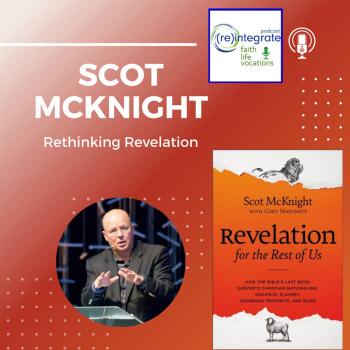Is the local church an institution that does the mission of God, or is it the gathering of God’s people so that they can be equipped and empowered to do the mission of God?
![jethani divine-commodity-250[1]](https://www.re-integrate.org/wp-content/uploads/2012/11/jethani-divine-commodity-2501.png) Skye Jethani, in his excellent book The Divine Commodity: Discovering a Faith Beyond Consumer Christianity, exposes a damaging trend in our day.
Skye Jethani, in his excellent book The Divine Commodity: Discovering a Faith Beyond Consumer Christianity, exposes a damaging trend in our day.
We treat corporations like they are people. This is due to the Supreme Court decision, Santa Clara County v. Southern Pacific Railroad, which applied the Fourteenth Amendment to corporations, granting them the right to be recognized as persons. As Skye Jethani writes,
“Ironically, the same law that ensured human beings would no longer have legal status as property was used to grant property the legal status of human beings” (p. 90).
The Fourteenth Amendment was the post-Civil War amendment (adopted in 1868) that overruled the Supreme Court’s ruling in Dred Scott v. Sandford (1857) that had held that black people could not be citizens of the United States.
In 1886, this amendment was applied to corporations.
Jethani then connects the dots between that decision and how we now emotionally, psychologically, and theologically convey personhood to institutions. Because of branding, we don’t just buy oats, we buy from “a smiling Quaker man;” we don’t just drive a car, we shout, “I love what you do for me, Toyota!”
“…as if the carmaker was a benevolent individual and not 300,000 anonymous employees organized into a profit-driven multinational institution. One hundred years of relating to personified corporations has caused a profound shift in the way we live” (p. 91).
“As such, with all sincerity, we can say, ‘“I love what you do for me, Faith Community!’ The personification of institutions in our culture means the institutional church, rather than the flesh-and-blood people of God, has become the vehicle of God’s mission in the world.”
Thus, those who lead the church as pastors start to believe that their job is to create a corporate brand, a church institution that people will be loyal to, that will have a positive reputation in the community, that our members will invite their friends to.
We develop vision statements, create programs, and we use slick marketing tools (including contemporary logos), all because we believe that the mission of God is to get people to “buy in” with our church, devote themselves to our programs, and in so doing, they will become deeper disciples of Jesus Christ.
But as soon as we start believing that the goal is to sell people warm feelings about the church, then we are way off the mark of God’s true mission for his church.
The mission of God is the redemption of His creation. In other words, God is ushering in His Kingdom. The institutional church is not the Kingdom of God, but rather the witnesses to the Kingdom of God.
Instead of placing the emphasis on marketing the church, the church should be equipping its people to be the witnesses of the Kingdom. It is the “flesh-and-blood people of God” that the Spirit indwells in order to be the incarnational-missional instrument for the Kingdom.
I pray that those who lead our local churches will embrace the vision that the mission of God is accomplished through God’s people living fully into their callings (their vocations) in such a way that they impact the culture and provide a witness to the Kingdom of God. I pray that the local church will re-imagine discipleship in such a way that it equips and empowers them to be the witness of the Kingdom of God in their workplace, their communities, their neighborhoods, and their families.












